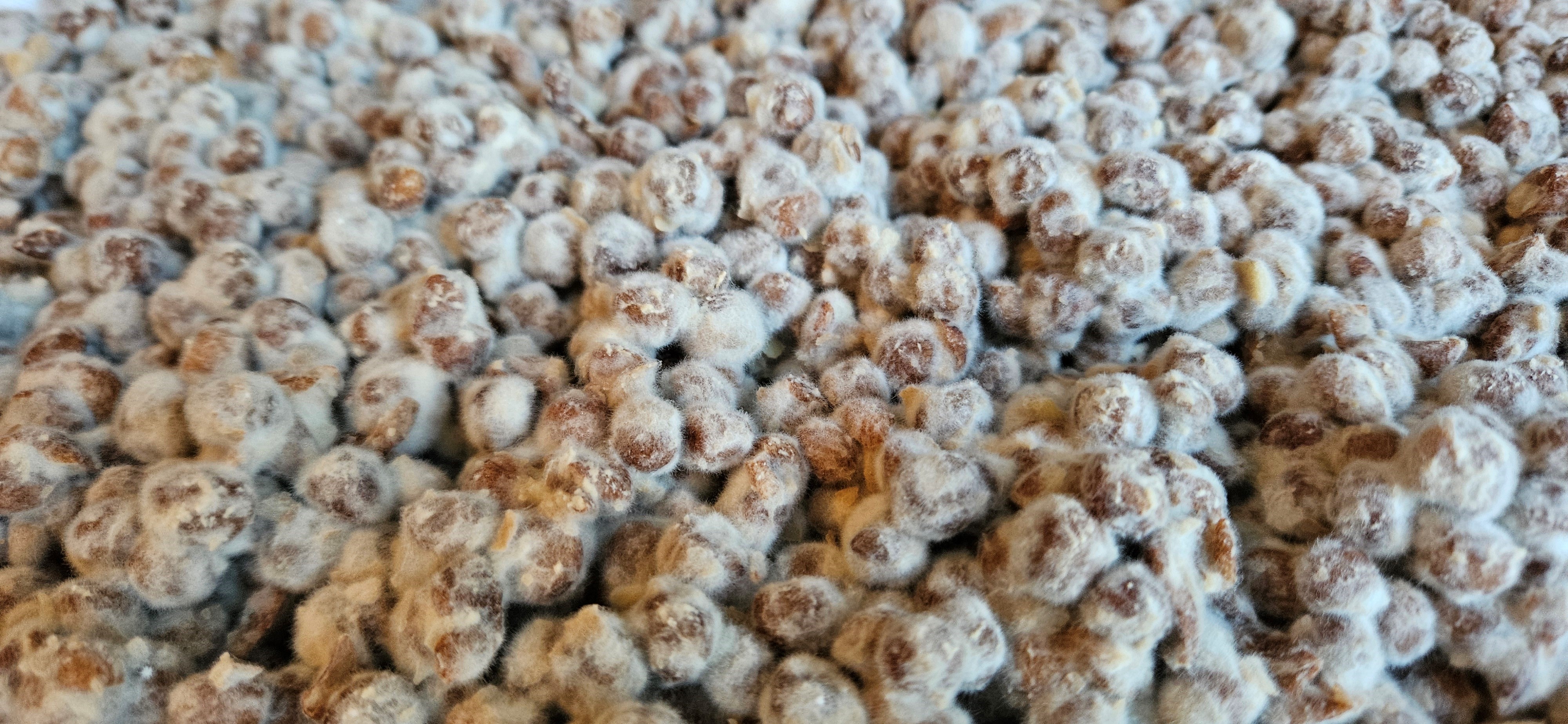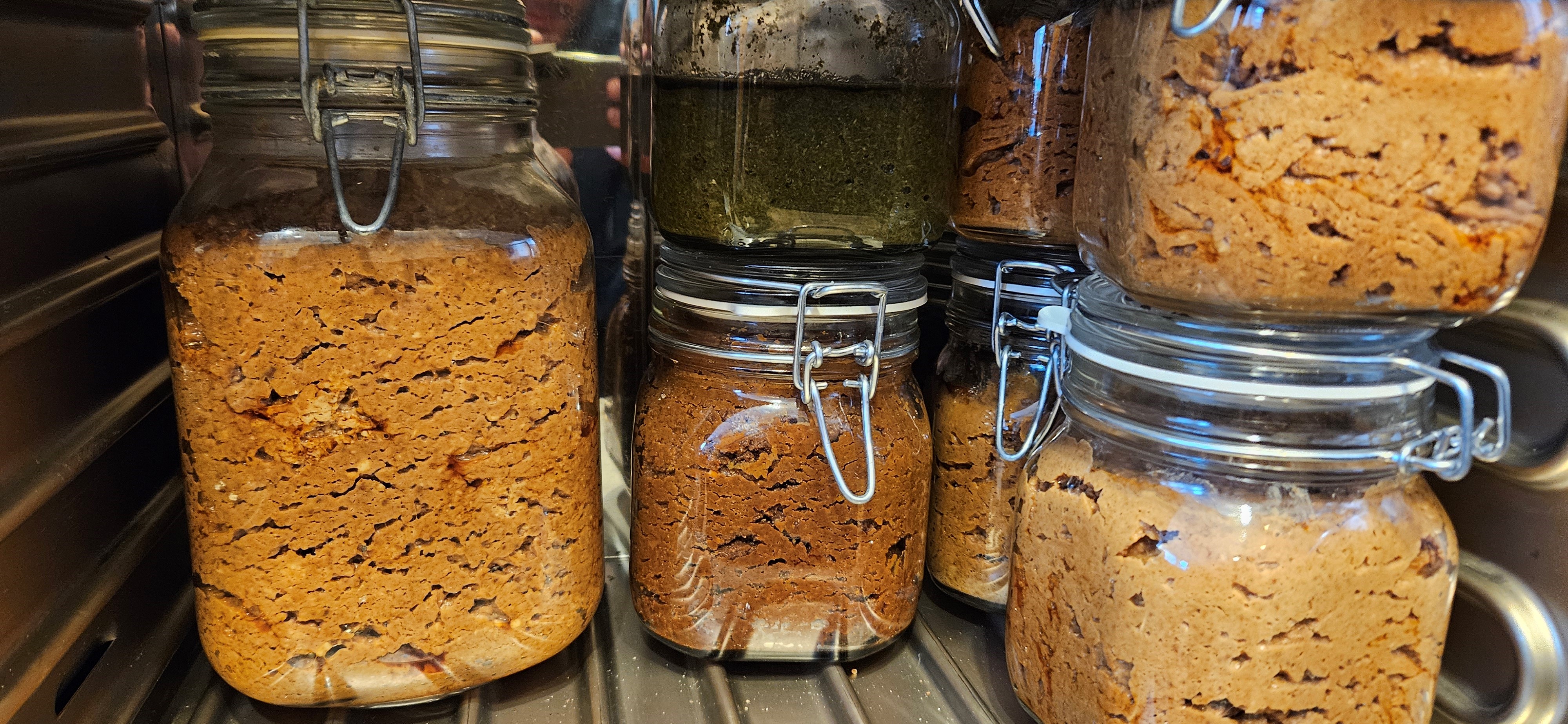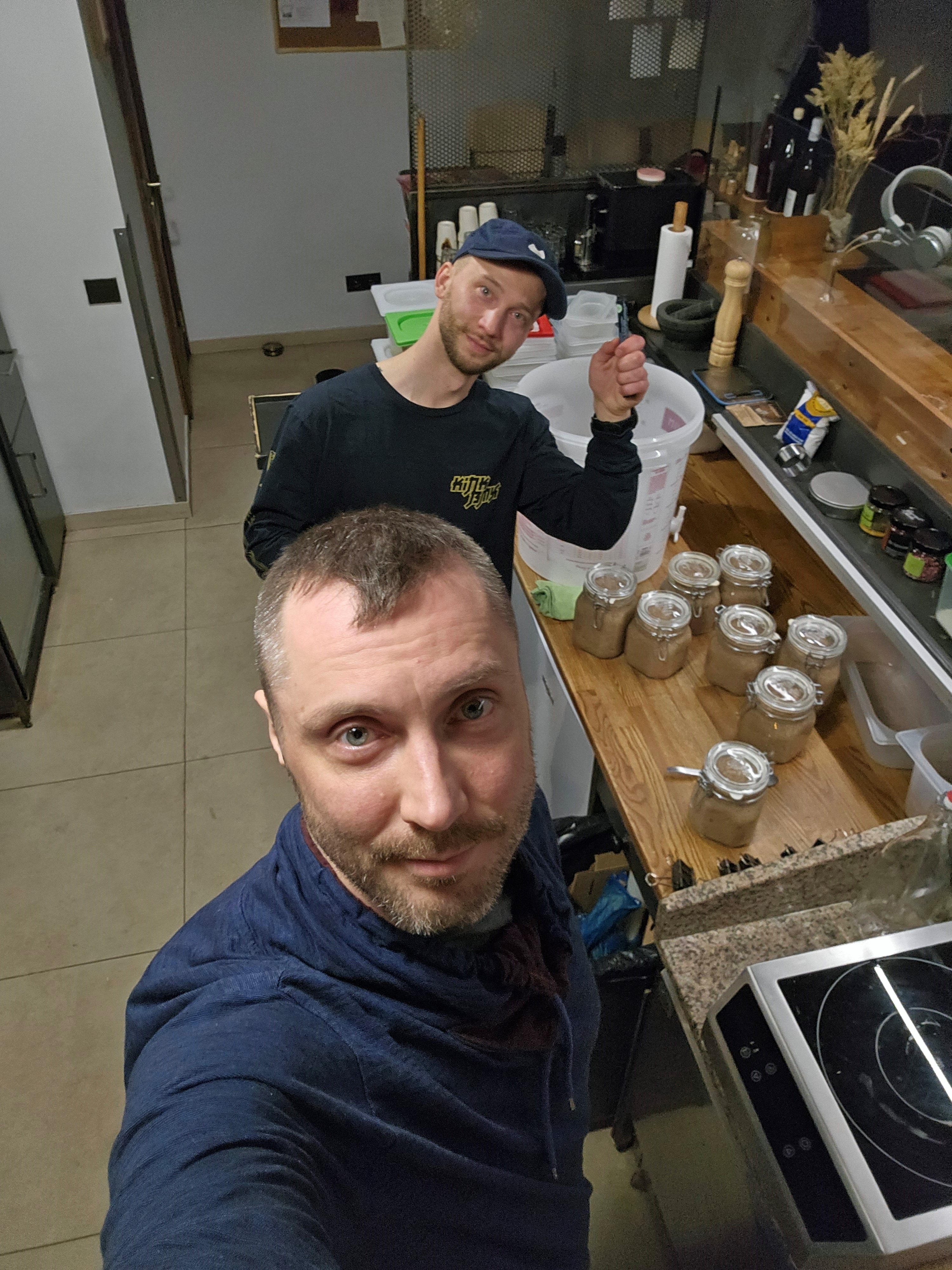Tasty and healthy: innovative grey pea product developed at RSU Business Incubator
Kārlis Langins is an economist and statistician by profession, who has swapped his previously monotonous work routine for a new challenge. It combines both passion and innovative entrepreneurship: numbers have been replaced by the world of food. With the support of the B-Space Business Incubator at Rīga Stradiņš University (RSU), he has developed a new food product from grey peas.
Langins’ road to success began with baking bread and learning the art of cooking, and has continued by collaborating with leading Latvian microbiologists.
How did the idea of this product come about?
I worked as an economist and analyst for a number of years. At some point I realised that I wanted to do something more creative and tangible. I started researching bread baking because I was fed up with the spongy bread I could get in shops. I applied for a job as baker with Michelin-starred chef, Dzintars Kristovskis. He fermented everything in the restaurant. I liked the process and ten years later, after various experiments and accumulated experience, I came up with the idea of using grey peas as the basis for a unique product that could promote this local resource and at the same time enrich dishes with a special flavour.

Inoculated grey peas start the first phase of fermentation. The mycelium of the fungus breaks down starch and proteins.
How would you explain fermentation to the reader?
In fermentation, we share food with microorganisms that “eat” the food and give it new properties. For example, yeast makes dough rise, bacteria acidify cucumbers.
How did this new pea product come about?
I started making sauces and pastes using everything from buckwheat to pike. When I teamed up with baker Kristaps Reimanis, we realised that grey peas were perfect for our purpose. After working with B-Space and microbiologists, the door opened for me to ferment on a whole new level, at a much higher quality. Our process uses both lacto-fermentation and special enzymes that give the final product a unique and rich flavour. We have created a paste that is salty and concentrated, but at the same time offers a variety of flavours thanks to the acids and enzymes produced during the fermentation process.

Photos of fermentation experiments
What role did the RSU Business Incubator play in the development of this project?
The help we received was crucial! I joined B-Space when I realised I needed more expertise and access to laboratories to develop the product. The incubator provided me with expert advice and new knowledge on how to develop the product and ensure that it is safe. Microbiologists from RSU helped us optimise the fermentation process, which gave us a great competitive advantage. The RSU Business Incubator not only gave me access to this expertise, but also created a motivating environment to develop my idea.
Edgars Lācis was the first to see its potential, and I thank him for his perseverance. Kristaps Zaļais is not only highly knowledgeable, but also a walking inspiration, which is very much needed in a process like this. I would also like to thank Luīze Madara Ziediņa for her encouragement at a very critical time. The amount of specific knowledge that Līga Žūka has. was exactly what we needed then and still need now. A special thank you also goes to Jānis Freivalds for the technological solution.
How will consumers be able to use the product?
It is very much like miso paste in nature, so the uses are similar, but thanks to our production method, they are even broader. The product could be described as a healthy seasoning, similar to a stock cube added to food. It can be used as a paste to add to soups, sauces, stews, or even to spread on bread. Its salty and varied flavour makes it a great addition both to everyday and holiday dishes. It can even replace salt. In addition, the enzymes produced during the fermentation process allow the paste to be used as a marinade for meat, making it softer and tastier.

Kārlis Langins (in the foreground) with business partner Kristaps Reimanis
Why is the product healthy?
Grey peas are non-allergenic and the paste is made through a natural fermentation that preserves and enhances their nutritional value. The grey peas that form the basis of the product are rich in protein and the preparation process gives them a unique taste without artificial additives or preservatives.
What is next for the product?
Our plan is to develop the product further by working with food laboratories to improve the quality and meet the highest standards. We are currently working on optimising our production processes to deliver a consistent and high-quality product. One of the challenges is finding suitable premises and equipment. In the future, we plan to expand by exporting this product abroad. So far, a product like this isn’t as known in Latvia, but it has great potential in the international market, where similar seasonings are used in almost every meal. We hope that our product will become an essential ingredient in the arsenal of both Latvian and international chefs.
Related news
 My international peers see me as a representation of Latvia. Interview with infectologist, Prof. Dace ZavadskaFor Students, Recognition, For RSU Employees, Interviews, Research, Traditional Events
My international peers see me as a representation of Latvia. Interview with infectologist, Prof. Dace ZavadskaFor Students, Recognition, For RSU Employees, Interviews, Research, Traditional Events


